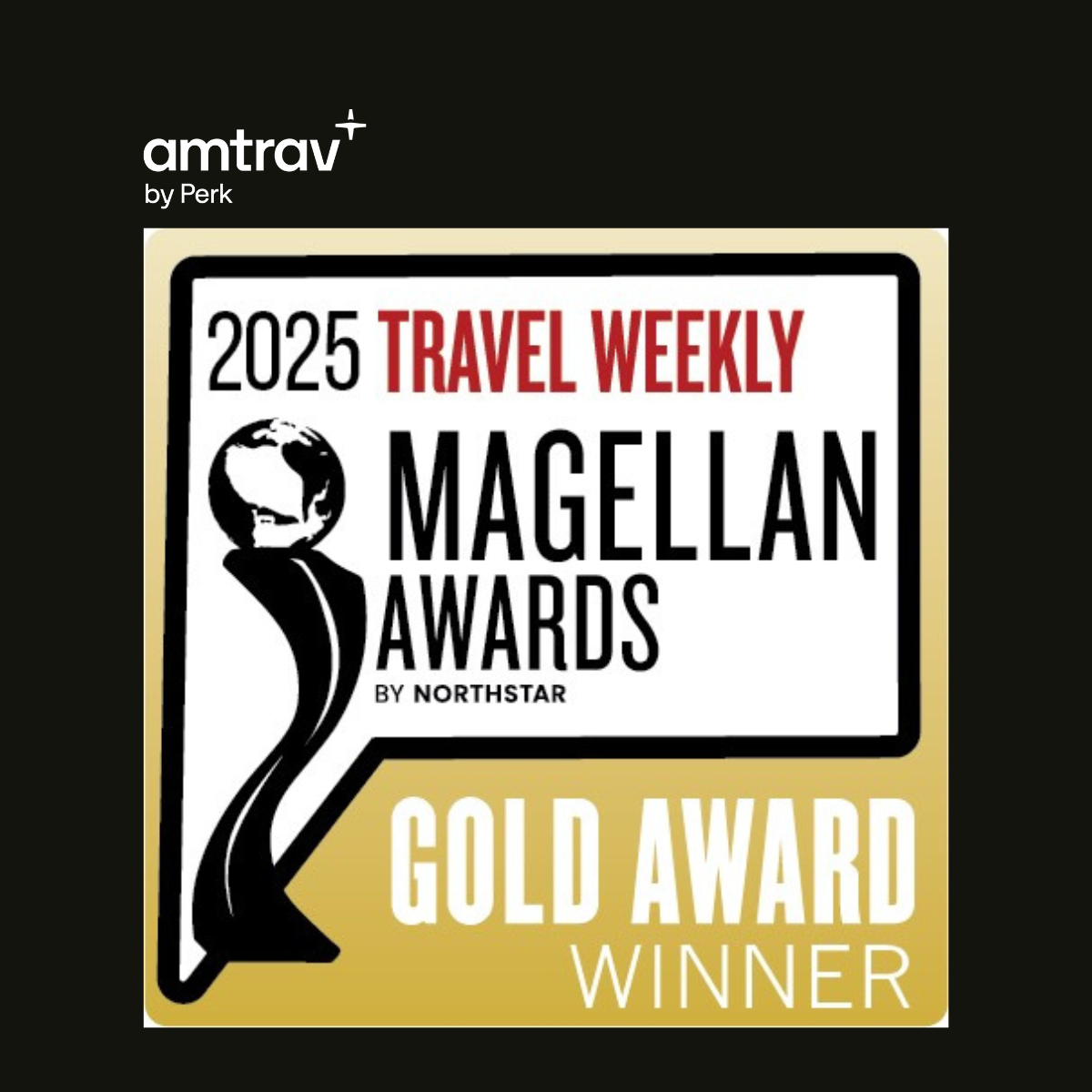Creating a successful travel and expense policy for your company is important since it’s likely where a large portion of your company’s budgetary funds are allocated. Having a fully functioning plan — one that the whole company complies with — can save money, as well as frustration, all the while keeping employees productive and happy.
A lot of companies choose to work with a travel management company, like AmTrav, which takes your policies and adheres to it. Doing so also can afford you other safeguards, from managing and tracking bookings to relaying vital safety information, and providing protections to those on the road. If you opt to go at it alone, having that policy in place is equally — if not more — important since employees are then responsible for booking their own travel and adhering to company travel policies by themselves.
Either way, having a travel policy that works for your company — one with clearly documented expectations and procedures — serves to keep things moving. It’ll help with cost control, employee satisfaction and expense reporting too.
Read on to learn five tips for creating the best plan to fit your company’s needs.
1. Involve the right people
If you have a travel department, kudos. Unfortunately, many small and mid-size businesses do not. Either way, the bottom line is it’s essential to include all stakeholders in the process of designing a travel policy. That includes finance, operations, and human resources — not to mention regular business travelers. Keeping everyone engaged ensures you’ll have a plan that works — and one that everyone buys into.
2. Cover the right things
It’s important to put a travel plan in place that fully addresses all of your needs so that nothing is left to interpretation. Your plan should detail where to book travel as well as how it should be paid for. Flight plans should relay class expectations, selection criteria and whether or not additional fees, such as travel insurance, are covered. When it comes to hotels, it’s important to note class expectations/limitations as well as the company policy on incidental expenses. Ground transport should also be addressed, whether it’s rail or rental cars. And if personal cars are used for work it should state the policy on mileage reimbursement, reimbursement for tolls, and the policy on parking costs. As for food, the plan should detail per diem spending guidelines. Not to be overlooked, a successful travel plan should also be clear on what is not covered.
3. Prioritize
Make sure your objectives address your needs, and keep your travel policy focused. It should encompass everything from ways to reduce travel costs and the policy and procedures for virtual meetings to methods for increasing advanced bookings, an approach to promoting preferred vendors and ways to secure favorable hotel rates.
4. Understand your costs
You should know which of your employees travel the most so they can help engage other employees in the compliance the process. Understand how travel is being booked, so you can help employees save. For example, do they fly business class? What hotel class do they usually choose? Do they use services like Uber? Further, since travel costs vary from city to city, it’s important to identify if a certain area accounts for the majority of company trips. If so, it’s important to create location-specific guidelines and hotel lists. Finally, because last-minute bookings are so expensive, make sure your plan includes ways to encourage advance booking.
5. Address reimbursement
It’s important to have a reimbursement policy that works for your company and your employees. It should include built-in ways to speed up reimbursement and offer incentives that steer employees toward low-cost online booking. A comprehensive travel policy should also include how employees are reimbursed, whether or not there is a company credit card (and what the policy relating to it entails), and what the process and requirements for submitting receipts is.
By: Jennifer O.

Cassie Sclafani




